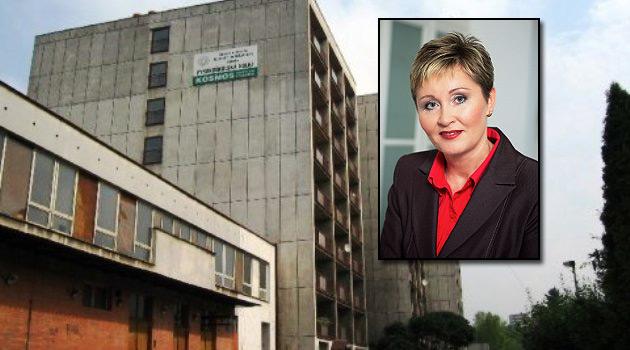Czech Labor Office says it cannot tell municipalities how to award housing benefits

As of May, when an amendment to the law on aid to those in material distress took effect, municipalities, not the state’s Labor Offices, have been tasked with deciding on whether to accept or reject applications for housing benefits. Municipalities around the country have begun using these new powers and the number of rejected applications for these benefits is rising.
According to recent estimates just of those municipalities followed by the media, a total of 1 028 applications have been rejected so far – which will have a direct impact on almost 2 000 persons who have, therefore, lost their housing. News server Romea.cz asked Zdeňka Cibulková, director of the Social Affairs Department of the General Directorate of the Labor Office of the Czech Republic, what position the Labor Office is taking on this situation and what persons whose applications are rejected are supposed to do.
Q: If a person living in a residential hotel applies for housing benefits and the municipality rejects them, what is the next move they should make?
A: The client does not ask the municipality for its binding decision, the Labor Office (Úřad práce – ÚP) of the Czech Republic does. The municipality sends its binding decision, whether acceptance or rejection (per Section 33 paragraph 6 of Act No. 111/2006 Coll., on aid to those in material distress, as amended by Act No. 252/2014 Coll.) to the relevant contact workplace of the ÚP. If a municipality issues a rejection, or does not issue any decision at all, it must initiate social work with the person concerned immediately. The ÚP then issues a decision to withdraw the housing benefit and delivers that decision to the client. If people have questions about what to do next, they should contact the local authority and the ÚP. While the ÚP does not have the power to tell municipalities how they are to make these decisions, it is prepared to collaborate on finding the optimal solution for these clients. For example, the ÚP can make it possible for them to increase their chances on the labor market, by which I mean, for example, the opportunity to work in a short-term job in the form of public benefit work or socially useful jobs through which they can gain practical experience, reacquire work habits, etc. Another option is to assign the client to a project aiming to support the employment of a specific target group at risk of long-term unemployment, and therefore social exclusion, or into re-qualification.
Q: What can the ÚP specifically do for those whose applications are rejected? What does your aid for these people look like in practice?
A: Social workers of the local authority are providing, with the framework of their social work, social counseling, and they should aid citizens in finding housing when they are incapable of finding new housing themselves. As I said, the ÚP is prepared to offer clients a helping hand through the instruments of the active employment policy, as well as exceptional immediate aid benefits. In this regard the ÚP and the municipalities intensively collaborate with social service providers and other NGOs and nonprofits involved in the legal and social protection of children, human rights, etc. These all jointly offer services to clients. The decision as to whether to take advantage of those services is ultimately up to the clients themselves. As an example, I can say there is close collaboration between the Agency for Social Inclusion, the Platform for Social Housing, which coordinates the aid of NGOs in certain localities, and the ÚP.
Q: What will you recommend to a person whose application is rejected in terms of options?
A: The result of such a rejection should be targeted social work with the client and subsequently the securing of new, dignified, standard housing for the welfare recipient, primarily in cases of families with children. If a client finds such standard housing, then he or she can, if he or she meets the conditions, draw both on housing benefits and on housing subsidies. The ÚP can send both kinds of these benefits directly to the account of the landlord.
Q: When a person applies for the extraordinary immediate aid benefit, what happens next?
A: The client can use that benefit to pay for accommodation in the facility that the municipality rejected the housing benefits application for. This is a one-time benefit that the ÚP can award three times in a row. However, it cannot replace the housing benefit – it is supposed to aid people in making it through the most complicated time and facilitate their having the time to find other housing.
Q: The extraordinary immediate aid benefit can only be disbursed three times in a row, and what then if the person is has not yet found new housing?
A: Aid in the housing area is an agenda within the purview of the municipality, not the ÚP. As I said, the ÚP can aid clients, for example, through the active employment policy instruments and can therefore appropriately complement the activity of the municipality.
Q: What is your assessment of this situation overall – how many people is the ÚP able to assist?
A: Please see the previous answers – the ÚP cannot do anything outside the legal framework.
Q: Isn’t the ÚP afraid that hundreds of people might actually end up "on the street"?
A: The ÚP does the utmost to prevent such situations arising. It informs the municipality in advance of the need to address the situation by taking advantage of the available social services. The ÚP has also informed its clients in advance who have long been living in residential hotels, and has done its best to prepare them for what might happen should it be no longer possible for them to draw on the housing benefit for that kind of facility.